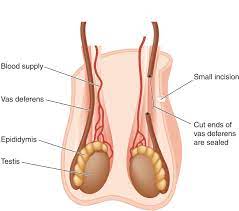
Vasectomy Cost
A vasectomy Cost is a surgical procedure in which the vas deferens, a small tube that carries sperm from the testes to the urethra, is cut. Vasectomy is one of the most common male reproductive procedures and is usually considered safe and effective. However, there is a small risk of complications, which is why it is important to discuss the cost and risks of a vasectomy with your doctor. Here are some of the most common vasectomy costs and what you should know about them.
- How much does a vasectomy cost?
Vasectomy Cost When you go to the doctor to get a vasectomy, the cost will depend on a few factors, such as your location, the type of vasectomy, and the surgeon you choose. The average cost for a vasectomy ranges from $1,000 to $2,000.
- Preparation for the vasectomy:
The vasectomy cost is not cheap, but it is an important decision you will make. Here are some things you should know about the vasectomy cost.
The vasectomy cost is determined by a number of factors, including the vasectomy type, your location, and your health. For example, a vasectomy with a single cut will cost more than a vasectomy with a two-cut procedure. The two-cut vasectomy is more common and is less likely to cause pain, making it a better choice for some people.
In addition, the vasectomy cost will also increase if you are a smoker. Smokers are more likely to have more serious health problems after a vasectomy, including increased risk of heart attack, stroke, and cancer.
The vasectomy cost also includes the doctor’s fee, anesthesia, and post-operative care.
- Anesthesia for the vasectomy:
Anesthesia is commonly used during surgery, and it’s also commonly used for vasectomies. Vasectomy is a surgery to remove a man’s vas deferens, which are the tubes that carry sperm from the testicles to the penis. The vasectomy procedure is usually done under general anesthesia.
There are several types of anesthesia that can be used for a vasectomy. The most common type of anesthesia is general anesthesia, which is a type of anesthesia that puts you to sleep. Other types of anesthesia that can be used for a vasectomy include regional anesthesia, which numbs a specific part of the body, and local anesthesia, which numbs a specific area of the body.
The vasectomy procedure usually takes about an hour. The vasectomy doctor will make an incision in the scrotum, and the vas deferens will be cut. The vasectomy doctor will then tie off the ends of the vas deferens. After the vasectomy is done, the wound will be closed with stitches.
There are a few risks associated with a vasectomy. The most common risk is a complication called post-vasectomy syndrome, which is a condition that can occur after a vasectomy. Post-vasectomy syndrome can cause pain in the testicles, a decrease in sperm production, and a decrease in the size of the testicles.
What We Should Know About The Vasectomy Cost?
A descriptive section for a blog post about vasectomy costs would be helpful. Vasectomy costs vary based on a variety of factors, such as location, type of anesthesia, and complication rates. Cost is also affected by insurance, so it is important to get a quote from a qualified provider. Vasectomy is a safe, effective, and common procedure, and it is important to know what to expect before, during, and after the procedure.
- Recovery after the vasectomy:
Recovery after a vasectomy is a process that usually takes about two weeks. Most men feel fine and can resume most activities within a few days of the surgery. However, some men may experience some mild discomfort and swelling at the site of the surgery. This should gradually subside within a few weeks.
Most men experience no other complications from the vasectomy. However, if you experience any unusual symptoms such as an increased risk of prostate cancer, fever, chills, or chest pain, you should see your doctor.
Overall, the recovery after a vasectomy is normally very easy and most men can resume their normal activities within a few days. However, if you have any concerns or questions, be sure to consult with your doctor.
- Post-vasectomy care:
After a vasectomy, it is important to take care of yourself in order to prevent any complications. Here are some tips to help you get started:
-Wash your hands thoroughly and often
-Avoid sexual contact for six weeks following the surgery
-Avoid hot tubs, saunas, and other hot baths
-Avoid vigorous exercise for six weeks following the surgery
-Avoid heavy lifting for six weeks following the surgery
-Drink plenty of fluids and avoid alcohol
If you experience any pain, fever, redness, or swelling, please contact your doctor immediately.
- Vasectomy risks:
There are a few risks associated with vasectomy. The most common is a minor injury that can occur during the operation. Other risks include:
-Bleeding
-Infection
-Reoperation
-Permanent infertility
There are also some risks that are specific to certain vasectomy techniques. For example, a vasectomy done with a cut will have a higher risk of infection than a vasectomy done with a non-cut vasectomy.
- Vasectomy complications:
There are several potential complications that can occur after a vasectomy, but thankfully most of them are relatively minor. However, it’s important to be aware of them so that you can take the necessary steps to prevent them from happening in the first place.
The most common vasectomy complications are:
- Bleeding: This is the most common complication and can occur for a number of reasons, including abnormalities in the vas deferens or problems with the surgical technique. It’s usually minor and can be treated with simple antibiotics.
- Infection: This is another common complication and can occur at any time after the surgery. It can be serious, however, and requires antibiotics and, in some cases, surgery.
- Pain: This is the most common complication and can be extremely difficult to deal with. In some cases, the pain can be so severe that the man has to stop working or school and may even require medication to manage the pain.
- Swelling: Swelling is common and can occur in any part of the body. It can be mild and go away on its own, or it can be more serious and require antibiotics and/or surgery.
- Permanent infertility: In very rare cases, a vasectomy can cause permanent infertility.
- Vasectomy side effects:
One of the most common questions that men ask about vasectomies is the cost. Vasectomies are not cheap and you should be aware of all the potential costs associated with the surgery.
Before your vasectomy, you should discuss all costs with your surgeon. The cost of a vasectomy can vary widely depending on the surgeon, hospital, and geographic location. The cost of a vasectomy can also vary depending on the type of vasectomy you have.
The most common types of vasectomies are the percutaneous or the open type. The percutaneous type is the most expensive, and it involves making a small hole in the scrotum and then snipping the vas deferens. The open type involves cutting the vas deferens close to the scrotum.
You also should be aware of potential side effects. Vasectomies can result in a variety of side effects, but some of the most common are:
- Loss of sex drive
- Erectile dysfunction
- Infertility
- Prostate enlargement
- Scarring
You should discuss all potential side effects with your surgeon before your surgery.
- Vasectomy outcomes:
A vasectomy is a surgery that is used to prevent a man from having children. Vasectomy costs vary depending on the provider and the procedure. Vasectomy may be done as an outpatient procedure or as a hospital stay. Vasectomy outcomes vary depending on the vasectomy technique used.
The most common vasectomy technique is the vasectomy reversal. The reversal is when the vas deferens is re-connected to the testicles. Vasectomy reversals are more expensive than traditional vasectomies and may have a higher complication rate. Vasectomy reversals also have a lower success rate.
Vasectomy success rates are usually between 80 and 95%.
- Vasectomy cost calculator:
Vasectomy is one of the most commonly performed surgeries in the world. The procedure is done to prevent male reproductive problems such as infertility, unwanted pregnancies, and prostate cancer. Vasectomies are also commonly done for men who are in a monogamous relationship and do not want children.
There are a few factors that will affect the cost of a vasectomy. Some of these factors include:
- The type of vasectomy you have
- The location of the vasectomy
- The number of vasectomies you have done
- The surgeon you choose
- The vasectomy procedure you have
- The time of year you have the vasectomy
- Your insurance coverage
The cost of a vasectomy will depend on a few factors, including the type of vasectomy, the location of the vasectomy, the number of vasectomies you have done, the surgeon you choose, and the procedure you have.
Some common vasectomy costs include:
- An unvasectomized man: $1,000
- A man who has had one vasectomy: $1,500
- A man who has had two or more vasectomies: $2,000 to $4,000
- A woman who has had one vasectomy: $3,000 to $5,000
- A woman who has had two or more vasectomies: $5,000 to $10,000
- A man and woman who have both had a vasectomy: $10,000 to $15,000

If you want to get amazing benefits by using this link
Conclusion:
We hope you enjoyed our blog post on vasectomy cost. Many couples are choosing to have a vasectomy as a permanent form of contraception. Here are some key facts about the vasectomy procedure that you may not have known. First and foremost, the vasectomy is a very safe procedure. It has a low complication rate, and the chances of having a complication are very low. Second, the vasectomy is a very quick procedure. It can be completed in just a few minutes. Third, the vasectomy is a relatively inexpensive procedure. Fourth, the vasectomy is reversible. Fifth, the vasectomy can be done on either the man or the woman. Sixth, the vasectomy can be done with or without the use of local anesthesia. Seventh, the vasectomy can be done in a variety of hospitals. Eighth, the vasectomy can be done with or without a consultation. Ninth, the vasectomy can be done with or without a nurse. Tenth, the vasectomy can be done with or without a doctor.

